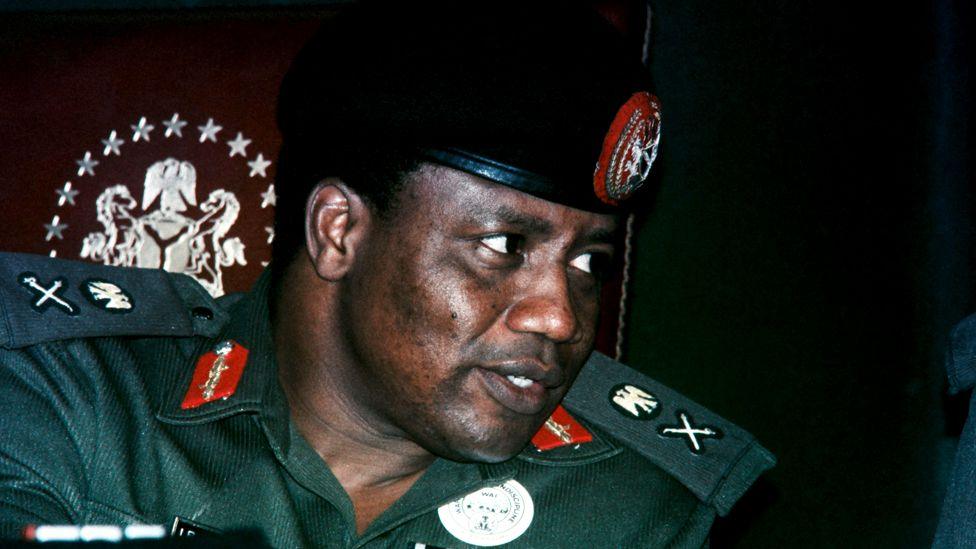Nigeria ex-military leader for first time admits regret over cancelled poll

Gen Ibrahim Babangida governed Nigeria from 1985 to 1993
- Published
Nigeria's ex-military ruler Gen Ibrahim Babangida has expressed deep regret for the first time for annulling the results of the 1993 presidential election.
The poll was supposed to bring about an end to military rule after 10 years and the cancellation of the outcome threw the country into turmoil. The date of the vote – 12 June - is now remembered in Nigeria as Democracy Day.
Gen Babangida was forced to resign. Moshood Abiola, widely believed to have won the election, was later imprisoned and his wife assassinated.
Nigeria's current President, Bola Tinubu, said Gen Babangida had shown courage by admitting what took place.
The former military leader, 83, expressed his regret at the launch of his autobiography A Journey in Service in the capital, Abuja, on Thursday.
"Undoubtedly credible, free and fair elections were held on 12 June 1993," he told the audience made up of the cream of Nigerian society, including Tinubu, two former presidents – Olusegun Obasanjo and Goodluck Jonathan - and two other ex-military leaders, Abdulsalam Abubakar and Yakubu Gowon.
"However, the tragic irony of history remains that the administration that devised a near-perfect electoral system and conducted those near-perfect elections could not complete the process.
"That accident of history is most regrettable. The nation is entitled to expect my expression of regret."
Gen Babangida, popularly known as IBB, also acknowledged that Abiola, who died in 1998, won the election.
However, in 1993 as results were being collated, the military government abruptly stopped the process - an action that triggered widespread protests and a political crisis.
For three decades, the circumstances surrounding the 1993 election have been shrouded in controversy, with conflicting accounts emerging overtime.
This new admission, seen as reopening old wounds, has triggered fresh debates rather than closure.
Many people will be expecting the former military ruler to also provide answers to some questions relating to his policies at the time.
Gen Babangida, who overthrew another military leader Muhammadu Buhari in 1985, led the county for eight years.
Multiparty democracy did eventually return to Nigeria in 1999 with the election of Obasanjo – who had also been a former military leader – as president.

Go to BBCAfrica.com, external for more news from the African continent.
Follow us on Twitter @BBCAfrica, external, on Facebook at BBC Africa, external or on Instagram at bbcafrica, external